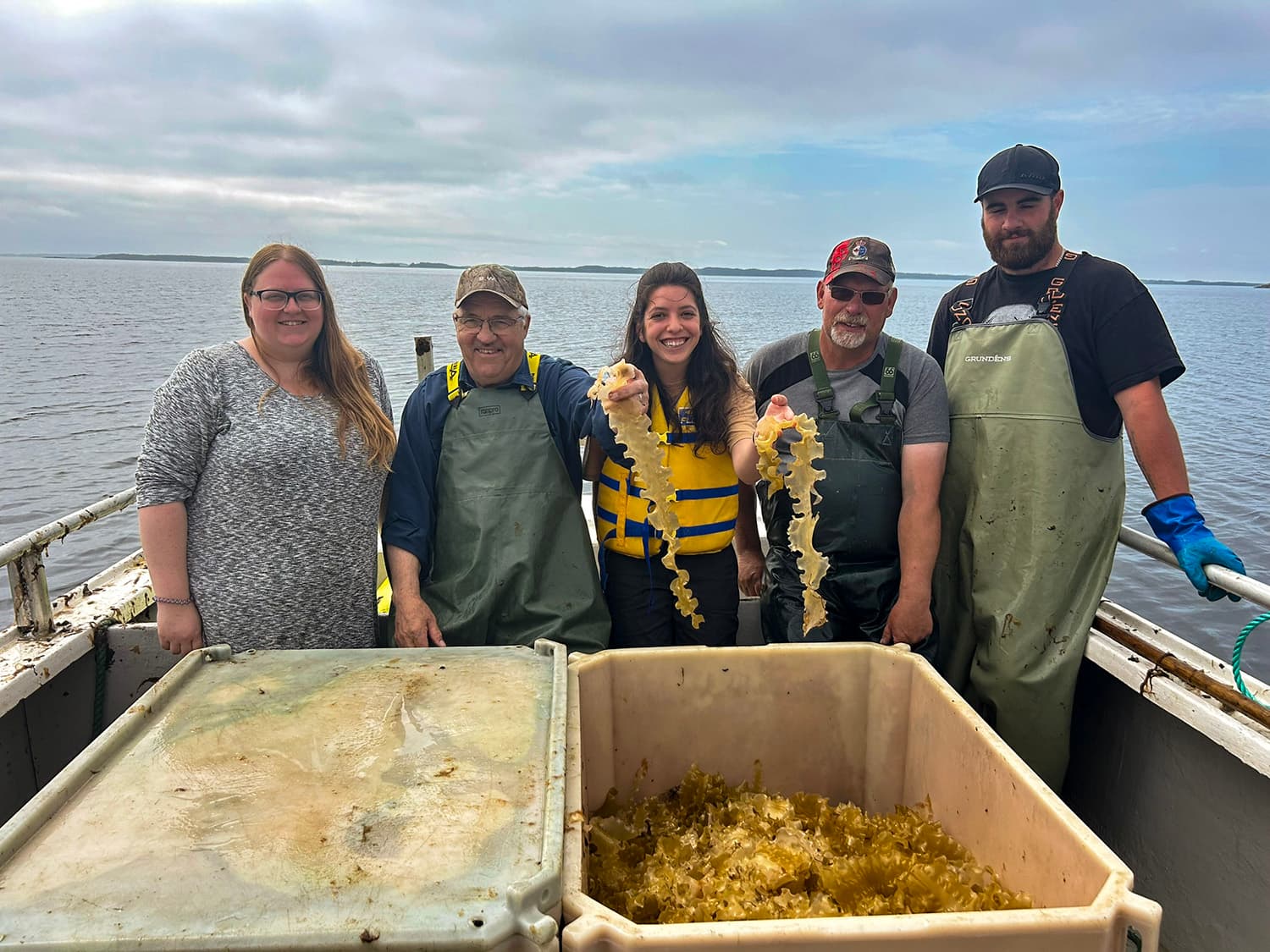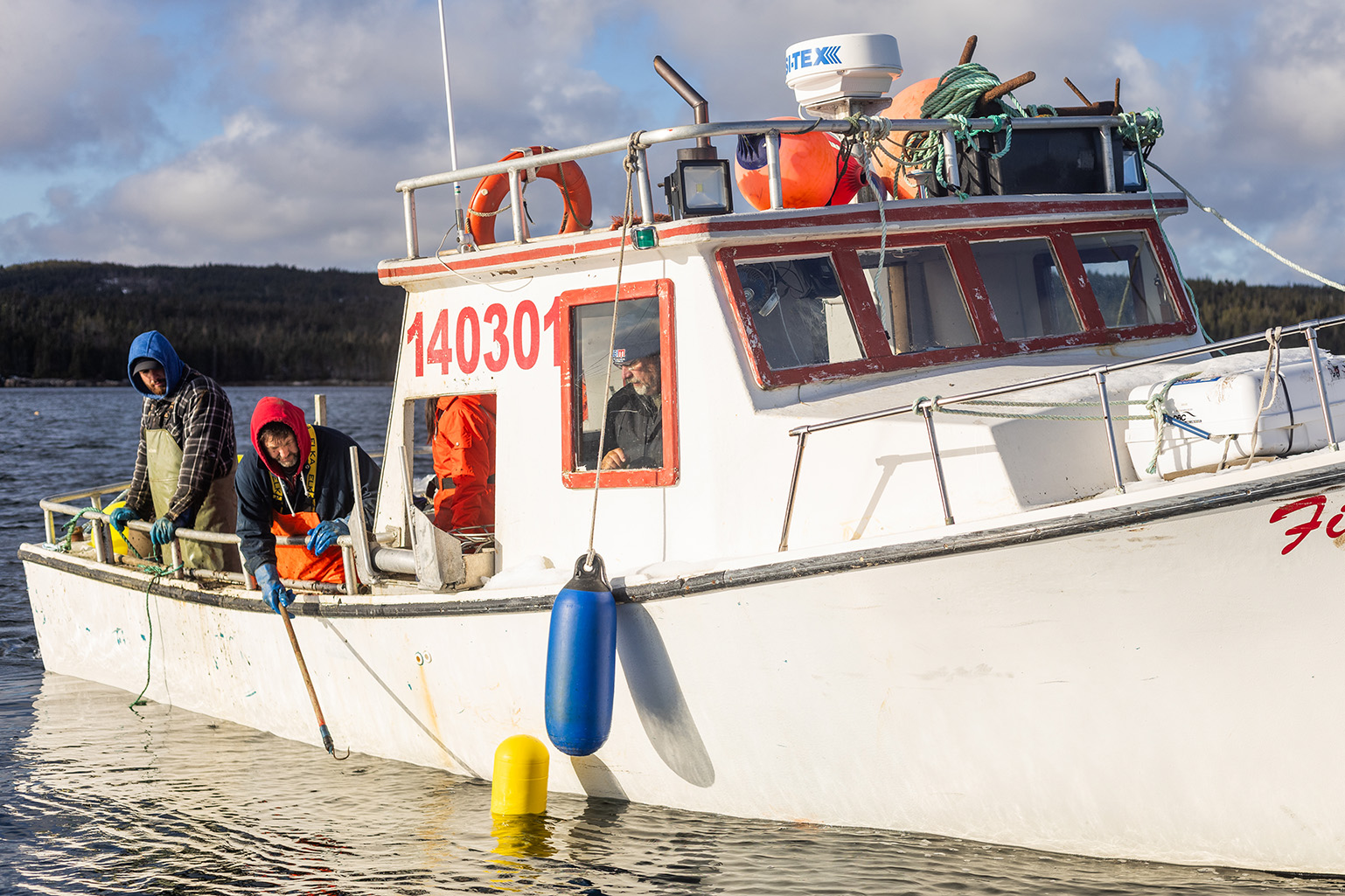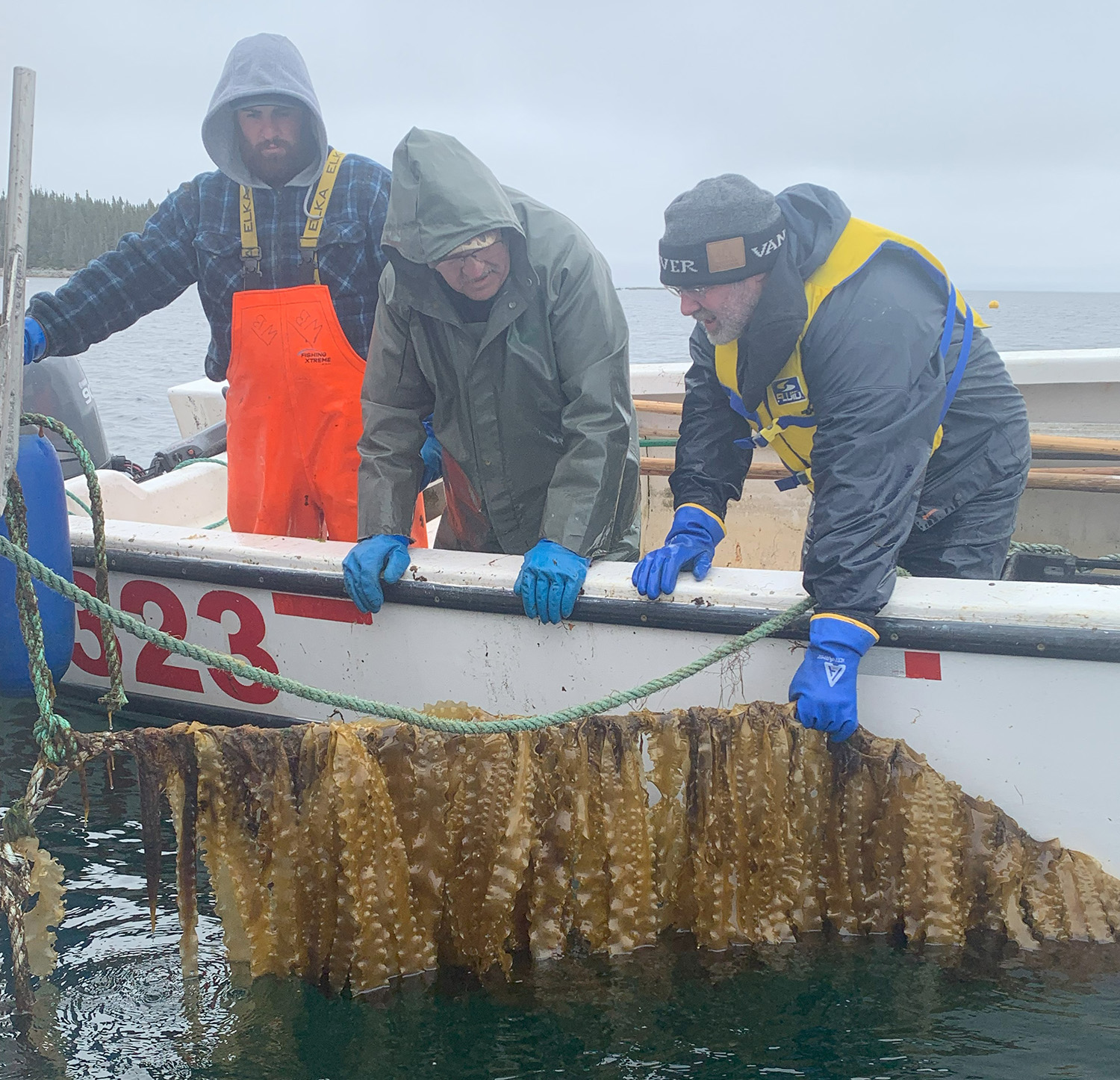
An important part of Shorefast’s work under the banner of Environmental Stewardship is to find new ways to create economic opportunity for our community while relying on the inherent knowledge and geographic assets already in place.
Growing seaweed is at the core of our current environmental initiatives — it can lead to economic and environmental benefits for Fogo Island.
Seaweed Pilot Project: Planting Seeds
Through our Seaweed Pilot Project, Shorefast is leading research and development towards the establishment of seaweed cultivation around Fogo Island. Successful seaweed cultivation in our waters could diversify the local economy and lower the barrier of entry into this form of aquaculture for the fish harvesters of Fogo Island.
Led by our Environmental Stewardship team, the project is currently a collaboration with the Fogo Island Co-operative Society and Kalup, a start-up on Change Islands and the first independent seaweed nursery to produce seeds in Newfoundland. The Pilot Project was developed with Marine Institute (MI) at Memorial University of Newfoundland and originally funded by the Canadian Centre for Fisheries Innovation (CCFI).
In 2024, the team enjoyed their first successful seaweed harvest, an accomplishment made possible by the many Fogo Island fishers and community members who provided their expertise and guidance.
Looking to more sustainable ways of farming
On Fogo Island, seaweed has always been used as garden fertilizer. Local gardeners will collect seaweed from Fogo Island’s beaches and lay thick layers atop of the soil.
Seaweed farming is one of the most sustainable forms of aquaculture. Seaweed can be used as biofuel, fertilizer, and animal feed. As a nutrient-packed ingredient, it can even be served in healthy, plant-based dishes. Most importantly, seaweed can be crucial to preserving the ocean that is essential to the livelihood of many Fogo Islanders. It promotes healthy oceans by:

Year-Round Farming
Farming seaweed is a year-round endeavour; our team braves rain, shine, or snow to maintain our crop.
The wild harvest begins in early fall when we find mature seaweed to use for a nursery. The nursery — an indoor saltwater lab facility — extracts spores from seaweed to grow more plants. Only a few blades are needed to produce up to 40,000 blades of farmed seaweed. Young seaweed seeds grow in the nursery for 4 to 7 weeks.
In late fall, we “seed” our lines. The seeds grow on a thin line in the nursery where they are monitored for ideal growing conditions (light, temperature and nutrients). Once the spores grow into small seaweed plants ready, we take that line and wrap it around our larger deployment line located in our seaweed plot off the coast of Fogo Island. These small plants are left in the water to grow through winter.
Farming continues in colder climate. Year-round, our Environmental Stewardship team tests the waters around our seaweed growing area to ensure conditions are right for happy and healthy seaweed. We regularly check water temperature, dissolved oxygen, and salinity — all of which have an impact on aquatic life. We also ensure our gear stays in place through winter storms and turbulent waters.
Our main growing season runs from early spring to July. That’s when we start measuring growth and monitoring how quickly the seaweed is maturing.
July is a very exciting time: harvest time! If it’s successful, we spend July to August maintaining the plot for the next growing season until we can extract mature seaweed from our local environment and start all over again.

The future of seaweed on Fogo Island & beyond
Through our investment in research and development, we continue to explore and expand on the uses for farmed seaweed beyond its traditional applications. This exploration relies on collaboration, such as our research partnership with Dr. Christina Smeaton at Memorial University, Grenfell Campus. Dr. Smeaton studies the reduction of carbon footprints in agriculture by using seaweed-based fertilizers.
For more information and updates on our Seaweed Pilot Project, follow us on Instagram and Facebook or contact our Environmental Stewardship team at environment@shorefast.org